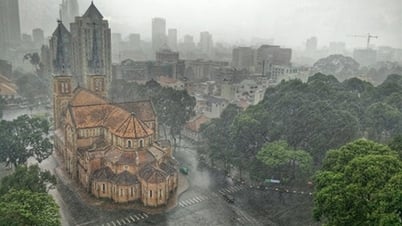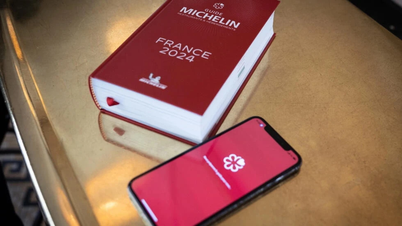On June 6, Muslims from around the world performed the ritual of stoning a large wall of Jamarat in the city of Mina, on the outskirts of the holy city of Mecca in Saudi Arabia as a symbol of stoning evil, thereby marking the final leg of this year's Hajj pilgrimage.
From dawn, the pilgrims left the large tent camp in the Mina valley, heading towards the area of three walls symbolizing the devil, where they performed the ritual of throwing seven stones at each wall.
A day earlier, thousands of worshippers in white robes climbed Mount Mercy, also known as Mount Arafat, believed to be where the Prophet Mohammed gave his last sermon, to pray and recite the Koran.
Despite the high temperatures, many people still choose to climb to the top of the mountain, despite government warnings to limit going out during the hottest hours of the day from 10am to 4pm.
This year’s Hajj pilgrimage took place in the context of the Saudi Arabian government stepping up measures to cope with extreme hot weather and strictly controlling pilgrims without permits. As a result, the number of participants decreased significantly compared to previous years, contributing to ensuring security and order at the pilgrimage sites.
The measure comes after last year's tragedy, when more than 1,300 people died in temperatures reaching 51.8 degrees Celsius. According to authorities, most of the victims were illegal pilgrims who had no accommodation, support services and health care.
This year's Hajj pilgrimage recorded the lowest number of participants in more than three decades, excluding the years of COVID-19 restrictions from 2020 to 2022. According to official figures, 1.8 million Muslims will participate in the pilgrimage in 2024.
Hajj is one of the five pillars of Islam and must be performed by all Muslims at least once in their lifetime.
According to regulations, Hajj permits are allocated to countries according to quotas and distributed to individuals by lottery.
However, the high cost has led many people to travel to Mecca without a permit, despite the risk of arrest and deportation if discovered.
In addition to fines, those found entering Mecca illegally during the Hajj could face a 10-year ban from entering Saudi Arabia./.
(Vietnam+)
Source: https://www.vietnamplus.vn/nguoi-hanh-huong-hoi-giao-thuc-hien-nghi-le-nem-da-vao-quy-du-post1042893.vnp




































































































Comment (0)